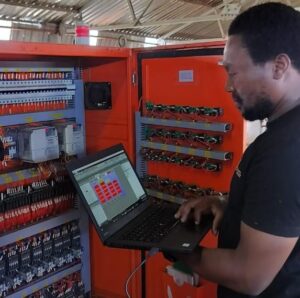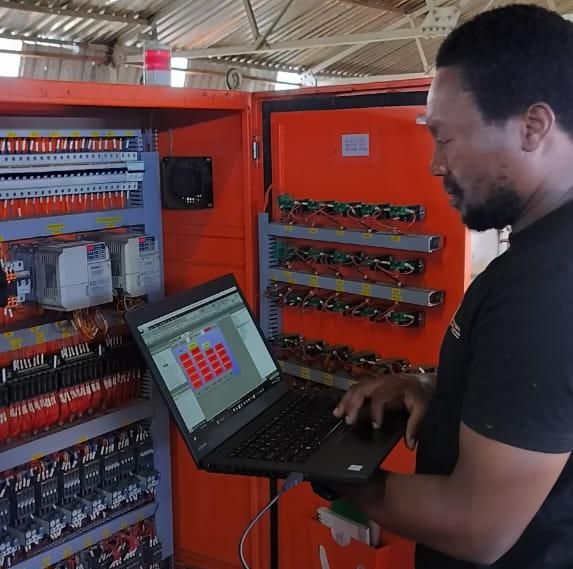By Chisomo Phiri
Malawian Electrical and Automation Technician based in South Africa, Chimwemwe Phiri, says industrial automation has the potential to transform the Malawi’s economy if well utilized.
Industrial automation is the use of robotics, machines and control systems to perform tasks that can be carried out by human workers.

In an interview with 247 Malawi News, Phiri, who works with a Danish company called Fibertex South Africa, said automation can boost productivity, reduce costs, and foster innovation.
He said automation can create new job opportunities, particularly in technology and related fields, despite potential job replacement in certain sectors.
“Automation leads to economic growth, higher living standards, and increased competitiveness for businesses,” said Phiri.
The automation expert noted that one of the greatest challenges in Malawi is that most companies do not provide lifelong learning opportunities for their workforce.
He urged companies to encourage lifelong learning by providing resources and incentives for individuals to acquire automation skills.
In terms of the manufacturing industry, Phiri said automation can improve competitiveness by improving product quality and increasing production speed.
“Automation gives flexibility and adaptability to machines, allowing manufacturers to easily switch between different products and production processes,” he said.
Phiri cited automated farming as one of the most successful automation projects that has made a significant difference in the world.
He also urged the government and private sector to invest in Science ,Technology,Engineering and Mathematics (STEM) education and training, as this is crucial for the country’s economic development.
“The government should invest in STEM projects to ensure that future generations have the skills needed to succeed in an economy that is increasingly dependent on technology and automation.
“The private sector should focus on upskilling the existing workforce by providing education and training tailored to specific industry needs,” said Phiri.
The automation expert emphasized the importance of automation in the agriculture sector, particularly in agro-processing.
“Malawi produces sunflower seeds and soya, but we fail to flood the market with cooking oil. Automation can make a significant impact if it is focused on the agriculture sector,” he said.



